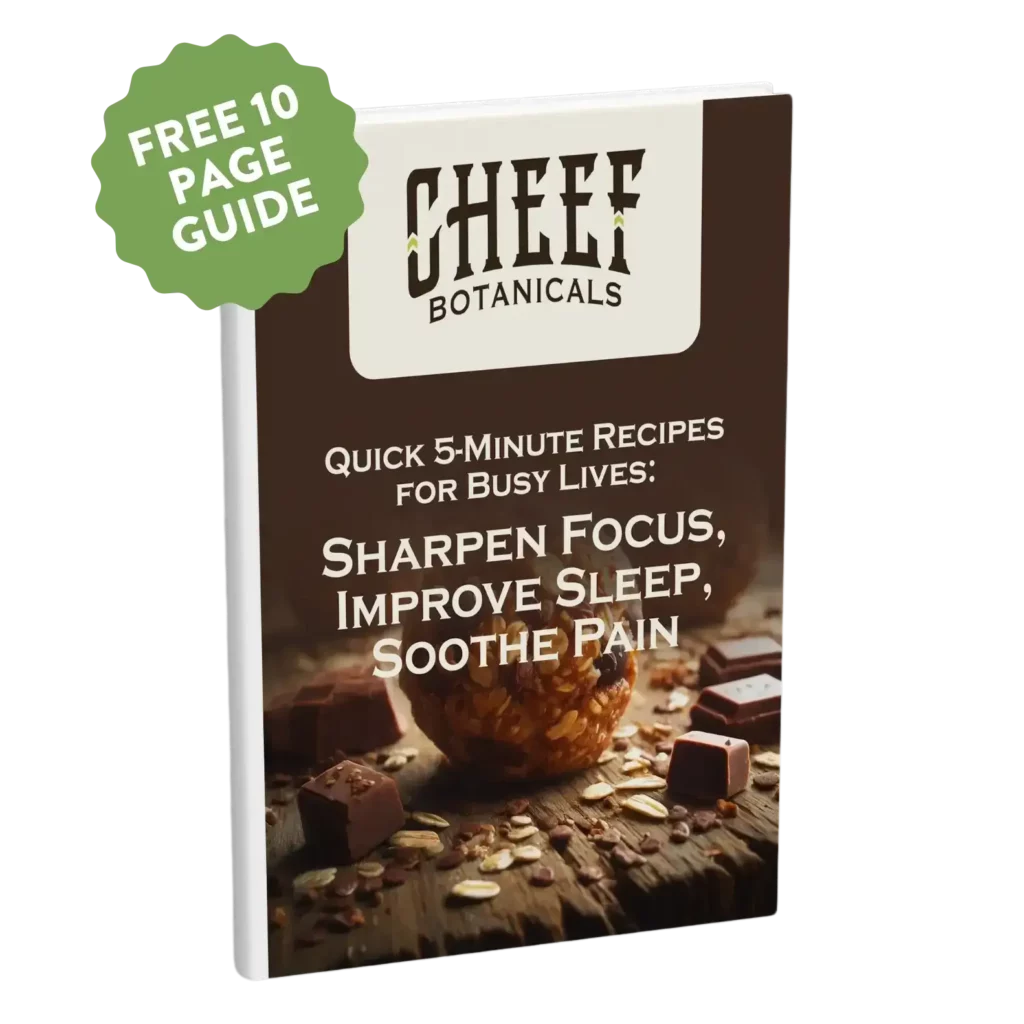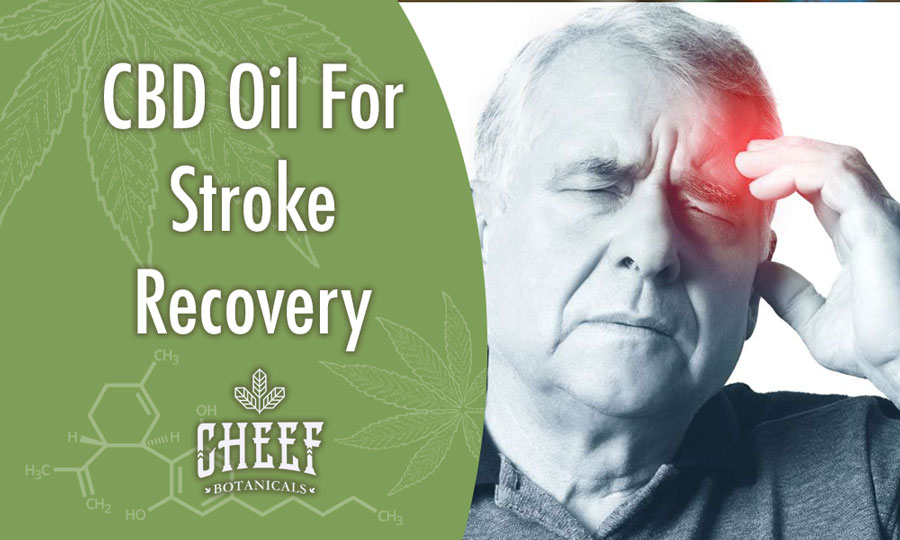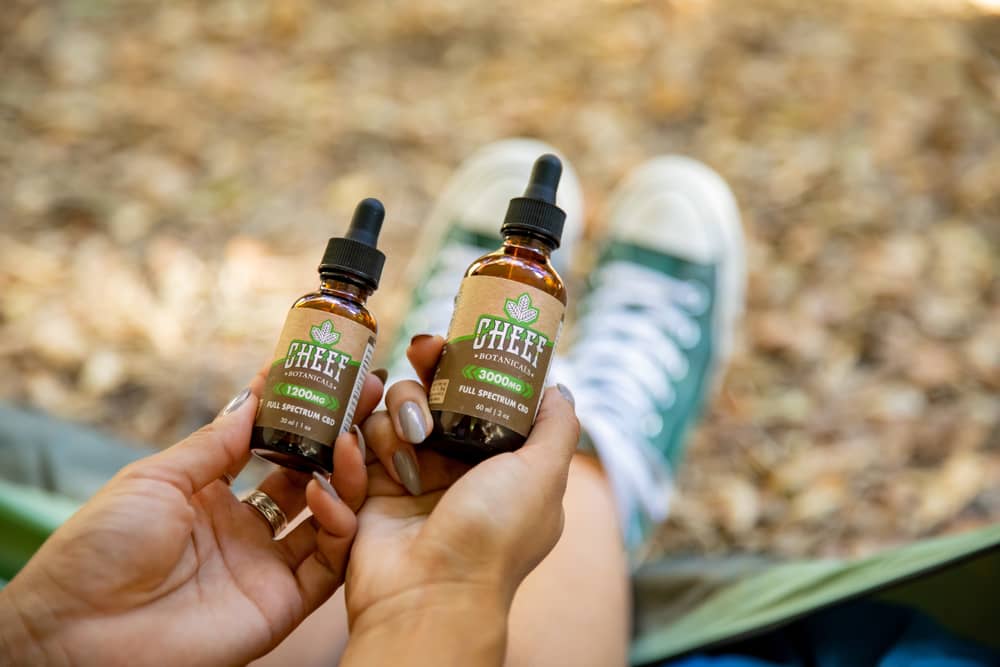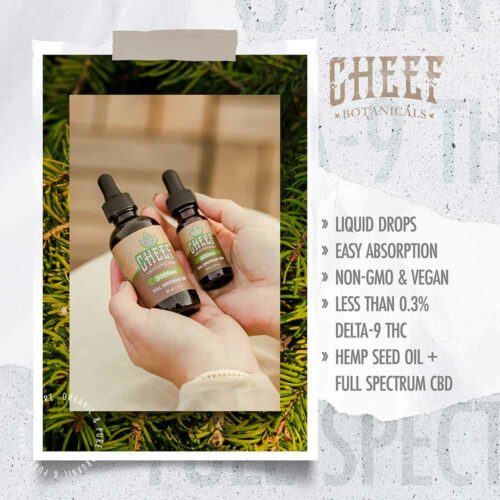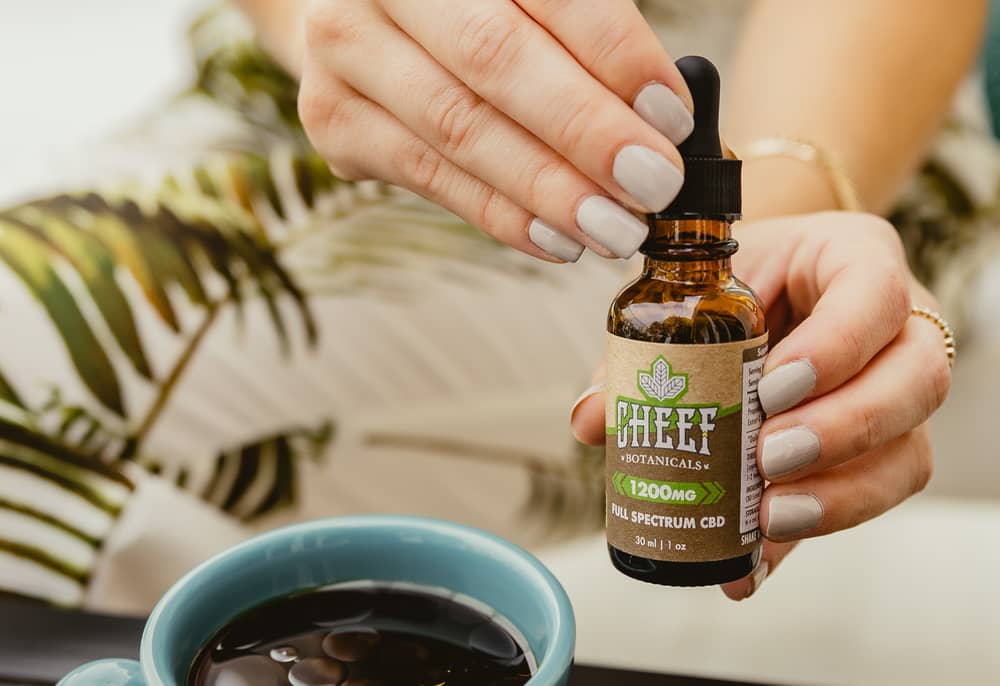Using CBD Oil For Stroke Recovery In Patients
Strokes can cause serious neurological damage. Research indicates that you may lose up to 1.9 million brain cells per minute during the course of a stroke. Strokes are very common. In fact, by the year 2030, approximately 4% of the US population will have suffered from a stroke.
Traditional recovery techniques can have limited success, depending on the severity of the stroke. CBD, which is becoming a popular all-natural method of dealing with a long list of issues, is beginning to gain traction in the stroke recovery community. Both using CBD oil or smoking CBD flower has shown to be effective in helping the human body achieve homeostasis, even in the face of adverse conditions.
What Is A Stroke?
A stroke is basically an acute medical condition in which blood, and therefore oxygen, is blocked from traveling to some part of your brain. Because the human brain is so complex and needs a constant supply of oxygen, cells begin dying immediately during a stroke. It should be treated as an emergency and medical care is needed immediately. There are two basic types:
- Ischemic, which accounts for nearly 90% of all strokes. They are usually triggered by high blood pressure and are essentially a clot or narrowing (ischemia) of the blood vessels in the brain. The two most common types of ischemic strokes are thrombotic and embolic. When a clot develops in a vessel that supplies blood to the brain, then a thrombotic stroke is triggered. An embolic stroke occurs when plaque or cholesterol from diseased blood vessels breaks apart and travels to the brain.
- Hemorrhagic, which are far less common, account for only about 10% of all strokes. However, they are far deadlier and contribute nearly 40% of all stroke-related deaths. A hemorrhagic stroke is when a blood vessel actually ruptures, causing internal bleeding and catastrophic injury or death.
High blood pressure is generally the most recognizable risk factor for having a stroke, but there are other factors at play as well. Contrary to popular belief, not all stroke patients are elderly. In fact, roughly 25% of strokes occur in patients under 65 years old. Strokes can even affect infants.
Symptoms of a Stroke Include:
- Confusion and difficulty speaking or understanding language. The stroke usually results in severe confusion as well as the possibility of a condition known as aphasia. This is a language disorder of the brain. The patient may also experience slurred speech due to paralysis in the face.
- Numbness and/or paralysis of the face and extremities. This usually occurs on only one side of the body. In severe cases, there are patients whose faces will droop on only one side or will be unable to use one of their arms or legs.
- Impaired or double vision. The patient may have temporary blindness in one or both eyes.
- Severe headaches as well as intense nausea and dizziness.
- Extreme vertigo, loss of balance, and difficulty walking.
What Are the Causes of a Stroke?
There are various risk factors that greatly increase the chance of having a stroke. These include:
- High blood pressure, usually from too much sodium in the diet.
- Smoking or using tobacco products. Nicotine causes blood vessels to constrict. This, in turn, raises blood pressure and contributes to hypertension.
- Obesity and diabetes are also substantial risk factors. Having unstable or uncontrolled blood sugar levels results in serious damage to the blood vessels. Furthermore, if a stroke occurs while blood sugar levels have spiked too high, then the damage to the brain is even greater.
- Genetics also play a major role. If there is a family history of hypertension or strokes, then there is a drastically increased risk of having a stroke.
- Heart disease and the hardening of arteries (atherosclerosis) caused by a buildup of plaque can result in a piece of that plaque breaking away and creating a clot known as an embolus. This can then travel to the brain and create a blockage.
A stroke is a profoundly damaging condition. Survivors, as well as their support networks and caretakers, have to learn to live with potentially permanent disabilities that can range from mild to debilitating. These disabilities may include physical, physiological, emotional, mental, and cognitive defects. These will then adversely affect the patient’s quality of life.
However, CBD has emerged as a promising candidate to promote overall wellness. If CBD helps the body to attain homeostasis, it just might help stroke survivors improve their quality of life.
Inflammation
Inflammation is the body’s response to medical trauma or injury to the body. When a patient suffers from a stroke, the body undergoes a profound process of inflammation at the site where the clot or hemorrhage occurred. This inflammation is part of a wider defense mechanism that the body’s immune system activates in response to a traumatic incident.
After a stroke has occurred, the brain has substantially increased levels of inflammation and oxidation in the damaged cells. A cell receptor called TLR4 interacts with a protein called galectin-3 which causes cells to release cytokines. This causes the body to continue producing an inflammatory response even after the stroke has stopped. This seriously damages the brain cells and surrounding tissues.
CBD interacts with the body’s endocannabinoid system (ECS). The ECS helps to regulate inflammation, among several other important bodily functions. Regulation of inflammation is an important process that the ECS must deal with during, and after, a stroke. The ECS creates cannabinoids of its own to help regulate inflammation. CBD, an external cannabinoid, interacts with the ECS to promote its functionality.
Stroke Recovery
The National Center for Biotechnology Information, which is part of the United States National Institutes of Health, has published a study that states, “CBD exerts positive pharmacological effects in ischemic stroke and other chronic diseases.” While these studies are still being researched, the nation’s leading medical minds believe that CBD’s interaction with the ECS can be integral in recovery. This is because inflammation plays such a big role in recovery and bodily functions.
CBD Dosage
We generally recommend 0.25 mg to 0.5 mg of CBD per every 1 pound of body weight once to twice per day. This is a sufficient dose for stroke recovery.
Physical Agony
Strokes are extremely painful. Usually, the physical agony and discomfort occur on one side of the patient’s body. During a stroke, large parts of the brain and nervous system are deprived of oxygen. This then triggers a massive, wide-scale death of cells. This may include the cells that allow our body to sense and process discomfort, soreness, and physical suffering.
When these pain cells are damaged or killed, there is profound neurological damage. This results in what is known as “neuropathic pain”. This is a specific type of pain that is characterized by its severity and a feeling of being stabbed or electrocuted. Traditional treatments for this particular symptom have long included the use of prescription opioid painkillers. However, these medications can result in severe side effects, including but not limited to addiction, intoxication, depression, and even death. CBD oil is safe, natural, and effective.
The ECS and Stroke Prevention
The ECS controls various processes including:
- Psychiatric and psychological, which are the conscious activities of the brain like speaking and cognition.
- Cardiovascular, which delivers oxygen all over the body via the heart and its blood vessels.
- The autonomic nervous system, which regulates unconscious activities like breathing, heart rate, and digestion.
- Inflammatory response, which regulates the body’s immune response to an injury or traumatic medical condition.
CBD interacts with the receptors in the ECS, helping to promote overall wellness and homeostasis. CBD is not psychoactive so it does not inhibit regular function and consciousness. It is well tolerated in most patients and has few side effects. However, CBD should be used under guidance from a health care practitioner to determine the correct dosage. Any CBD oil that is being purchased should be done so from a legitimate provider that has proper milligram dosages on the products being sold. The traditional recovery techniques for stroke survivors are challenging and slow-moving. Using CBD oil for stroke recovery is becoming a popular alternative to traditional recovery techniques.
The statements made regarding these products have not been evaluated by the Food and Drug Administration. The efficacy of these products has not been confirmed by FDA-approved research. These products are not intended to diagnose, treat, cure or prevent any disease. All information presented here is not meant as a substitute for or alternative to information from health care practitioners. Please consult your health care professional about potential interactions or other possible complications before using any product. The Federal Food, Drug and Cosmetic Act requires this notice.

